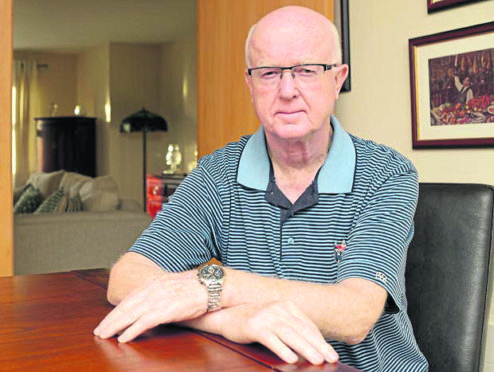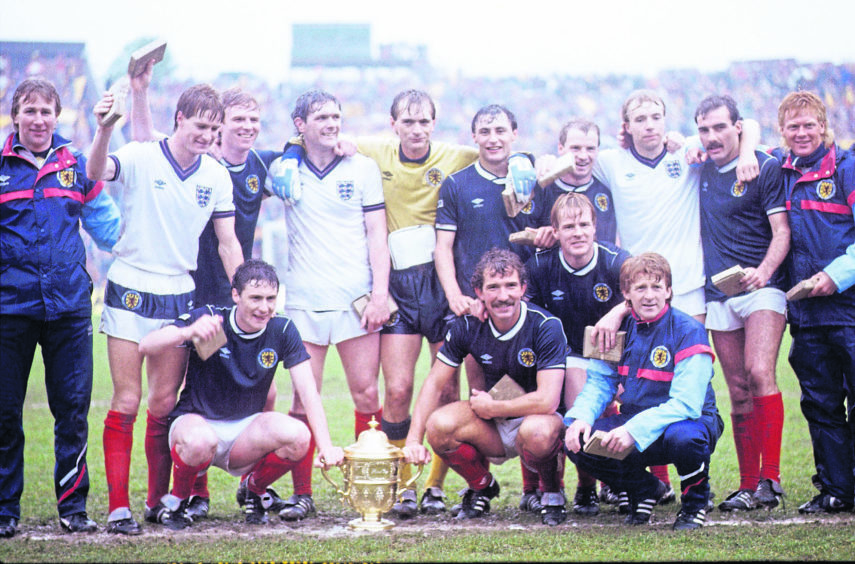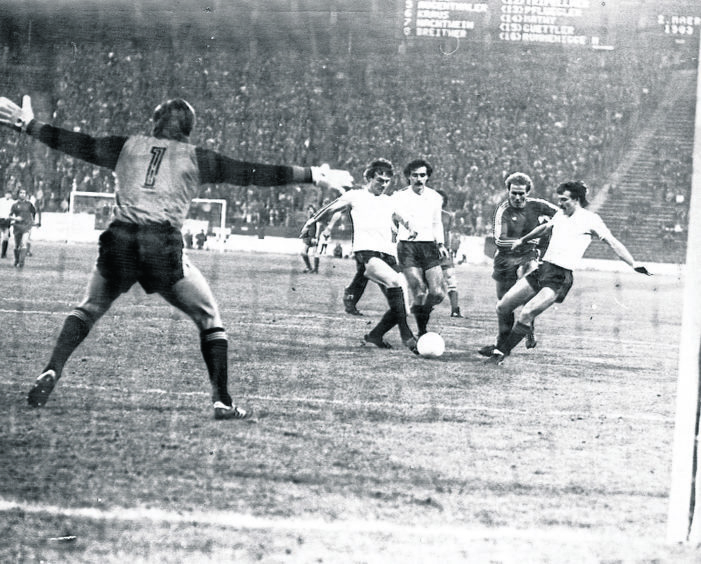He is one of Scotland’s most exalted commentators – the voice of a generation that grew used to its compatriots qualifying for major football tournaments on a regular basis.
However, Archie Macpherson has no illusions about the scale of the task in resuscitating the Scottish national game, following decades of under-achievement.
As the 81-year-old prepares to travel to the north-east next month to give a talk in the Grassic Gibbon Centre at Arbuthnott, there is an element of Sunset Song about his thoughts on the future.
He has chronicled a plethora of his memories in an evocative new book Adventures in the Golden Age (Black & White Publishing, £11.99) which often reads more like an elegy than your typical sporting volume.
And he has no panaceas which might be the catalyst for a transformation in the Scots’ fortunes to help them to reach their first major competition finals since the 1998 World Cup.
He said: “The reason for our demise over the past 20 years at international level is quite simple.
“The players haven’t been good enough. The reasons for that are more complex, though. Foreign players have flooded into our club game, limiting the choice of home-bred talent available to respective national managers.
“Social conditions and alternative sedentary pastimes have seduced too many young prospective players away from mucking about on a football park.
“A younger generation seems to want life a little easier.
“And abroad, with the increase in Europe of national sides after the break-up of the former Soviet Union, we are forced to play many more games against teams who, at the least, are highly competent.
“That means qualification for a World Cup now is about 10 times more difficult than it was when Craig Brown last led us to France.”
Macpherson has witnessed the best and the worst in Scotland’s football history – from the glory of Celtic’s European Cup triumph in 1967 to the Old Firm riot at Hampden in 1980, which he compared to Passchendale.
But while proud of his west of Scotland roots, he has spent enough time in the north-east to appreciate Aberdeen FC’s contribution to the game during the last 40 years.
That explains why he has taken an interest in the debate over whether the Dons should leave their current home and relocate to Kingsford.
He said: “Thinking of Pittodrie, at any time, takes me back to when I used to sit in the bootroom with Sir Alex Ferguson when he was plain Fergie and blethered and gossiped about everything in the game.
“I recall when he told me he had rebuffed Rangers’ efforts to seduce him to Ibrox and of how he cultivated his players’ will to win by partly recounting the disdain in which the west of Scotland press held his club.
“Over and above that, I thought the commentary position at Pittodrie was about the best in the country.
“But sentimentality shouldn’t trump pragmatism. Remember that Aberdeen are former European title holders. So it seems to me it is appropriate to ditch parochial disputes and make their move to a stadium built for a new age.
“Personally, though, I would implore them to maintain the five-star quality of the Pittodrie half-time pie!”
Macpherson’s reminiscences are often trenchant, occasionally piquant, but seldom run of the mill.
The ghosts of greatness linger in his mind, but he can pinpoint one particular occasion when he realised how things were changing.
He explained: “On June 4 1986 I was handed the team sheet in the Neza Stadium in Mexico, prior to Scotland’s opening World Cup game against Denmark.
“It remains in the mind’s eye as the most valid piece of evidence of how football from the north-east had redefined our footballing culture.The Aberdeen team provided the manager, Sir Alex, and the core of the defence in keeper Jim Leighton and central defenders Willie Miller and Alex McLeish.
“Dundee United’s Richard Gough and Maurice Malpas were the wing backs and United’s Paul Sturrock roamed up front. The only other domestic-based player in the side was Celtic’s Roy Aitken.
“That team sheet was memorable because in that single World Cup game, the world was getting to know, and not just a domestic audience, that the Glasgow-oriented lop-sided nature of Scottish football had irreversibly changed.”
That pattern has never been reversed.
Nor is there any indication, given the finacial gulf between the game in Scotland and many other parts of Europe that it ever will be.
No wonder the bold Archie might feel that the gold has turned to gilt since the Dons swept all before them in on a famous day in Gothenburg in 1983.
Further information about the Football in Question event on September 20 is available from andrewalexhall@icloud.com


